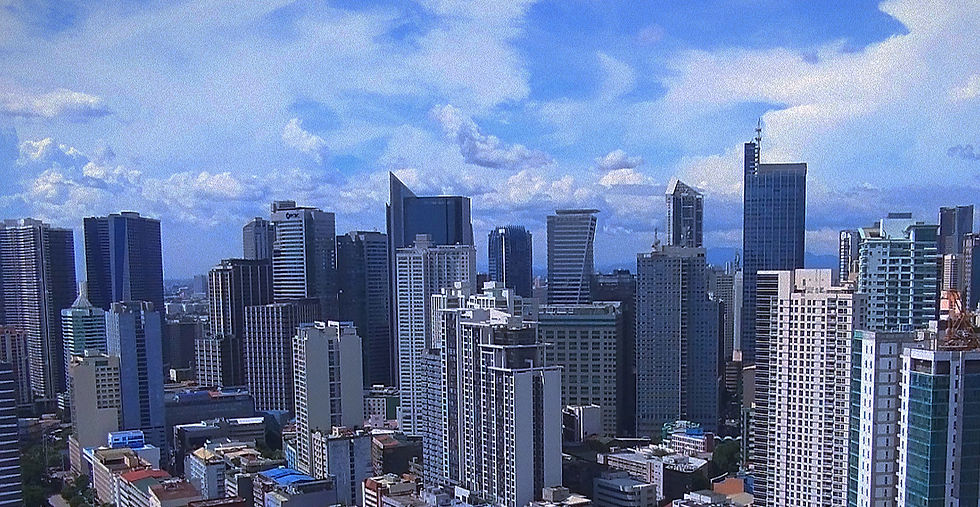5 Key Factors: How Trump Presidency Could Positively Impact the Philippine Real Estate Market
- bedandgoinc
- 2月6日
- 読了時間: 3分
更新日:2月7日
January 6, 2025
The Philippine real estate industry is already experiencing significant growth, fueled by the investment-friendly policies of the Marcos administration. However, experts believe that a second Trump presidency could further enhance this upward trajectory. According to Santos Knight Frank chairman Rick Santos, Trump's business-oriented leadership and real estate background could provide additional advantages, particularly in trade and investment relations between the U.S. and the Philippines.

5 Key Factors Supporting Real Estate Growth of the Philippines
1. Trump's Real Estate Expertise
As a businessman with extensive experience in real estate, Donald Trump has consistently promoted economic and investment-friendly policies. His leadership is expected to foster a pro-business environment that may encourage more foreign direct investment (FDI) into the Philippine property market. Given Trump's understanding of real estate dynamics, his administration could prioritize policies that enhance global investment flows, benefitting emerging markets such as the Philippines. With a focus on deregulation and tax incentives, U.S. investors may find the Philippine property sector increasingly attractive, leading to increased capital inflows into residential, commercial, and industrial real estate.
2. Strengthened US-Philippine Relations
A Trump presidency could bolster economic ties between the U.S. and the Philippines, fostering more favorable trade policies and investment agreements. Strengthened diplomatic relations could encourage more American companies to expand operations in the Philippines, leading to heightened demand for office and commercial spaces. Additionally, as U.S.-based businesses seek cost-efficient outsourcing solutions, the Philippine business process outsourcing (BPO) sector may experience significant growth, further increasing the need for real estate developments catering to office spaces and employee accommodations. The industrial and manufacturing sectors are also likely to benefit, driving demand for commercial and industrial properties.

3. Marcos Administration's Pro-Business Policies
The Philippine government, under the Marcos administration, has already set the stage for a robust investment environment. Policies such as the CREATE MORE Act aim to encourage business expansion, reduce corporate income tax, and incentivize foreign investments. These measures have positioned the Philippines as an attractive destination for global enterprises seeking growth opportunities in Southeast Asia. With a stable economic foundation, the country is poised to draw more international investors into the real estate sector. This alignment of policies between the U.S. and the Philippines could create a more dynamic and investor-friendly market.
4. Strong Residential Market Performance
Manila continues to demonstrate resilience in the global real estate market, as evidenced by its strong performance in Knight Frank's Prime Global Cities Index. The city's high demand for prime real estate, coupled with limited supply, has resulted in consistent property value appreciation. Should a second Trump presidency reinforce economic ties and increase investor confidence, the residential market is expected to remain strong. Foreign investors, particularly from the U.S., may look to Manila as a lucrative destination for high-value real estate investments, further fueling market growth. With continued economic expansion and rising demand, property developers will likely accelerate projects to meet the increasing need for quality housing and rental properties.

5. Potential Increase in Infrastructure Investments
With a pro-business stance, a Trump administration could advocate for increased U.S. participation in infrastructure development projects in the Philippines. This could include partnerships in major transportation, commercial, and industrial projects, boosting demand for real estate. Increased infrastructure development often leads to improved connectivity, making property investments in key urban centers more attractive to both local and foreign investors. The expansion of highways, airports, and smart cities could further elevate the Philippines' position as a prime real estate investment hub.

A Trump presidency, combined with the Marcos administration's ongoing economic reforms, could lead to a stronger and more dynamic real estate market in the Philippines. The alignment of pro-business policies, enhanced trade relations, and increased investment opportunities may drive sustained growth in both the residential and commercial real estate sectors. With the Philippines offering a competitive market landscape, global investors may find it an ideal destination for long-term property investments. If these factors align, the Philippine property market could experience continued expansion, attracting greater global interest and solidifying its position as a premier investment hub in Southeast Asia.
SOURCES:


コメント